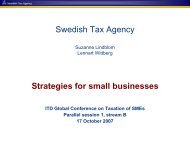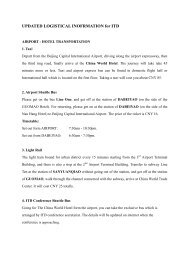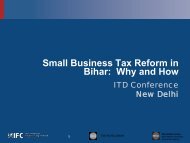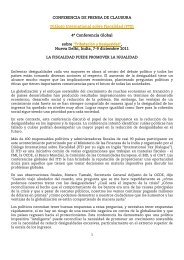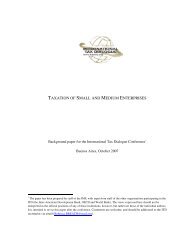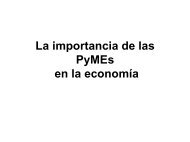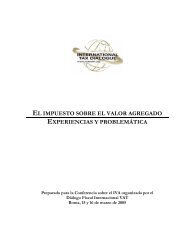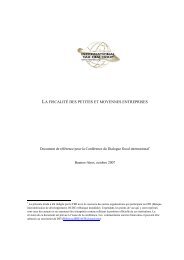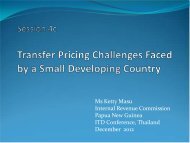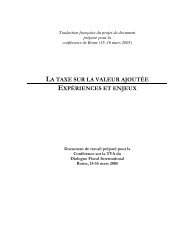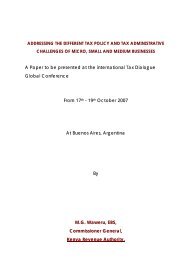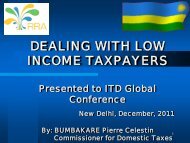Arcotia Hatsidimitris - International Tax Dialogue
Arcotia Hatsidimitris - International Tax Dialogue
Arcotia Hatsidimitris - International Tax Dialogue
You also want an ePaper? Increase the reach of your titles
YUMPU automatically turns print PDFs into web optimized ePapers that Google loves.
6. REACHING A DECISION POINT – 51<br />
Box 11. United Kingdom’s Litigation and Settlement Strategy<br />
• The Strategy sets out the principles within which HMRC handles all disputes about any taxes or duties<br />
where those disputes are subject to civil law procedures, and whether disputes are resolved by<br />
agreement with the taxpayer or through litigation. This includes most of HMRC’s compliance activity.<br />
• The two key elements of HMRC’s approach to tax disputes are:<br />
<br />
<br />
supporting taxpayers to get their tax right first time, so preventing a dispute arising in the first<br />
place; and:<br />
resolving those disputes which do arise in a way which establishes the right tax due at the least<br />
cost to HMRC and to its customers, which in most cases will involve working collaboratively.<br />
• The LSS encourages HMRC staff to:<br />
<br />
<br />
<br />
<br />
minimise the scope for disputes and seek non-confrontational solutions;<br />
base case selection and handling on what best closes the tax gap;<br />
resolve tax disputes consistently with HMRC’s considered view of the law;<br />
subject to that, handle and resolve disputes cost effectively – based on the wider impact or<br />
value of cases across the tax system and across HMRC’s customer base;<br />
ensure that the revenue flows potentially involved make any dispute worthwhile;<br />
<br />
<br />
<br />
(in cases where HMRC’s position is strong) settle for the full amount HMRC believes the<br />
Tribunal or Courts would determine, or, where that is not possible, litigate;<br />
(in cases where there is no scope for compromise, for example where the facts are agreed and<br />
the question is whether the law applies in a particular way) not split the difference;<br />
(in weak or non-worthwhile cases) concede rather than pursue.<br />
In appropriate cases, Alternative Dispute Resolution (ADR), and more specifically mediation, can help<br />
HMRC and its customers resolve disputes in a cost effective and efficient manner.<br />
In a number of countries there is an internal appeals process that can be invoked before a case<br />
goes to formal litigation in the Courts. These processes can help to achieve agreed settlements in<br />
cases. The appeals systems used in Japan and the US are described below.<br />
Governance of decisions to litigate or settle<br />
To support its Strategy set out in Box 11, HMRC has governance processes for all significant<br />
decisions about settlement and litigation. Those processes have recently been endorsed by the UK’s<br />
National Audit Office. 2<br />
In broad terms, all cases and/or issues with tax at risk in excess of 100 million GBP must be<br />
considered by the High Risk Corporate Programme (HRCP) Board which is chaired by the Director of<br />
the Large Business Service (LBS) and consists of directors of other key parts of the Department.<br />
DEALING EFFECTIVELY WITH THE CHALLENGES OF TRANSFER PRICING © OECD 2012



